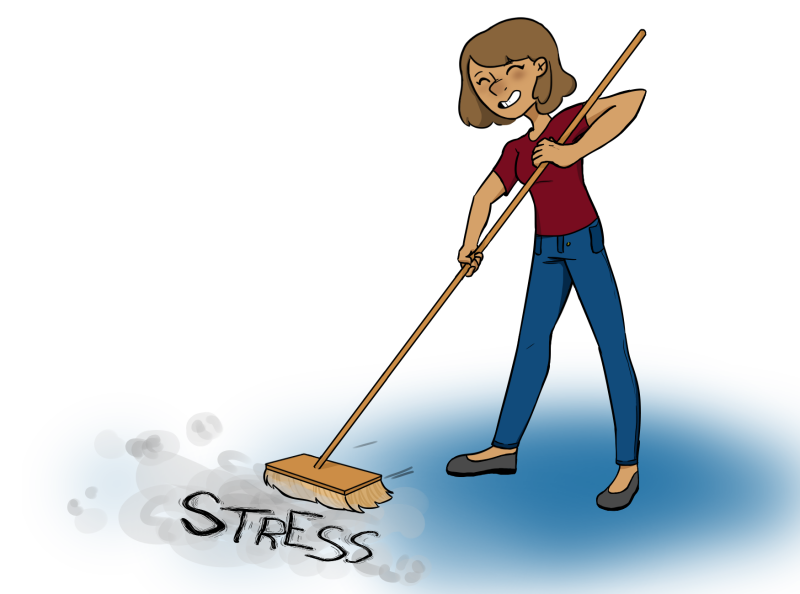Every student has felt stress from time to time. Stress is a condition or feeling that we get when we do not have control. We feel this in situations where we are out of time, resources, and/or knowledge. The intensity of stress is determined by the consequences of the task. Many students struggle with school-related stress, which can impair academic success, compromise mental health, and even produce health risks. For many people, struggling with stress and finding solutions to manage it can be hard. Doing activities like sports, getting more sleep, and talking through problems can all serve as great stress-relievers.
The average teenage student is supposed to get a minimum of nine to nine-and-a-half hours of sleep a night. Sleep loss is a major cause of stress. Failure to get the appropriate amount of sleep can lead to mental and physical health problems. Lack of sleep inhibits thinking and learning by impairing concentration, alertness, and problem solving abilities. Simple ways to get more sleep can include avoiding distractions before going to bed, not drinking caffeine or eating high-sugar foods during the evening hours, and regularly going to bed on time.
The most effective way to reduce stress is exercise. When we are feeling stressed, our body creates hormones to help manage the situation. Some of these hormones can negatively affect you mental and physical health, exercise can metabolize these hormones to make use feel more relaxed. Doing any sort of exercise for any time period helps with stress, and studies show that routinely doing two hours of high-intensity exercise on a daily basis can alleviate stress. Exercise also greatly improves physical health, mitigating life-threatening health risks. Risks like heart disease, stroke, asthma, and obesity.
The leading factor for stress among students is time management. The overwhelming burden of things to do causes stress. Creating “to-do” lists and prioritizing tasks is a great way to manage stress. When students learn how to properly manage their academic and outside lives, stress is not as much of an issue. Changing how they view school is also vital. Learning that setbacks aren’t life-changing, and understanding that we need balance between fulfilling obligations and choosing enjoyable activities can greatly reduce the effects of stress on a person. Overworking your body negatively affects your academic and personal life. Extreme amounts of stress originating in school environments not only affect day-to-day life, but may have severe consequences later on in life. Students may find it hard to comprehend that doing poorly on a test will not define the rest of their lives. In many cases, if they find themselves stressed over time constraints of a school assignment, discussing concerns with a teacher can take the weight off. Stressing over complicated things can create more problems.
The easiest way for a student to alleviate stress is to see school counselors. School counselors are trained to help students with stress by teaching relaxation techniques, offering help in speaking to teachers, or other solutions.
Stress is a severe problem that, if not dealt with correctly, can negatively affect a person’s whole life. Finding solutions is important to keep the body and mind healthy. Life, especially high school, is meant to be enjoyed, and stress takes this away from people. However, solutions to stress can be simple, and can take the pressure off a crucial time in everybody’s life.











